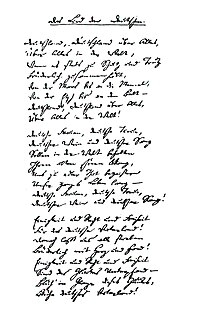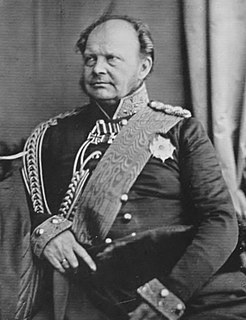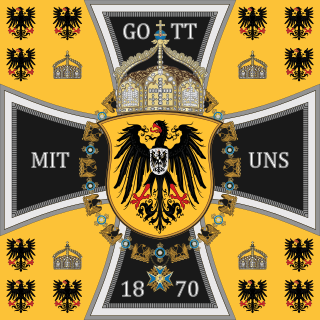
Bavaria, officially the Free State of Bavaria, is a landlocked state (Land) in the south-east of Germany. With an area of 70,550.19 square kilometres (27,239.58 sq mi), Bavaria is the largest German state by land area, comprising roughly a fifth of the total land area of Germany. With 13 million inhabitants, it is Germany's second-most-populous state after North Rhine-Westphalia but due to its large size, it is one of the least densely populated states. Bavaria's main cities are Munich, Nuremberg, and Augsburg.

The "Deutschlandlied", officially titled "Das Lied der Deutschen", or part of it, has been the national anthem of Germany since 1922. In East Germany, the national anthem was "Auferstanden aus Ruinen" between 1949 and 1990.

Hamburg, officially the Free and Hanseatic City of Hamburg, is the second-largest city in Germany after Berlin and 7th largest city in the European Union with a population of over 1.84 million. Hamburg's urban area has a population of around 2.5 million and its metropolitan area is home to more than five million people. The city lies on the River Elbe and two of its tributaries, the River Alster and the River Bille. One of Germany's 16 federated states, Hamburg is surrounded by Schleswig-Holstein to the north and Lower Saxony to the south.

Szczecin is the capital and largest city of the West Pomeranian Voivodeship in northwestern Poland. Located near the Baltic Sea and the German border, it is a major seaport and Poland's seventh-largest city. As of December 2019, the population was 401,907.

The Brothers Grimm, Jacob Ludwig Karl Grimm (1785–1863) and Wilhelm Carl Grimm (1786–1859), were German academics, philologists, cultural researchers, lexicographers and authors who together collected and published folklore during the 19th century. They were among the first and best-known collectors of German and European folk tales, and popularized traditional oral tale types such as "Cinderella", "The Frog Prince", "The Goose-Girl", "Hansel and Gretel", "Rapunzel", "Little Red Riding Hood", "The Wolf and the Seven Young Goats", "Rumpelstiltskin", "Sleeping Beauty", and "Snow White". Their classic collection, Children's and Household Tales, was published in two volumes—the first in 1812 and the second in 1815.

Braunschweig or Brunswick, is a city in Lower Saxony, Germany, north of the Harz Mountains at the farthest navigable point of the Oker River, which connects it to the North Sea via the Aller and Weser Rivers. In 2016, it had a population of 250,704.

During the later stages of World War II and the post-war period, Germans and Volksdeutsche fled or were expelled from various Eastern and Central European countries, including Czechoslovakia, and the former German provinces of Silesia, Pomerania, and East Prussia, which were annexed by Poland and the Soviet Union. In 1957, Walter Schlesinger discussed reasons for these actions, which reversed the effects of German eastward colonization and expansion: he concluded, "it was a devastating result of twelve years of National Socialist Eastern Policy." The idea to expel the Germans from the annexed territories was proposed by Winston Churchill, in conjunction with the Polish and Czechoslovak exile governments in London at least since 1942. In late 1944 the Czechoslovak exile government pressed the Allies to espouse the principle of German population transfers. On the other hand, Polish prime minister Tomasz Arciszewski, in an interview for The Sunday Times on 17 December 1944, supported the annexation of Warmia-Masuria, Opole Regency, north-east parts of Lower Silesia, and parts of Pomerania, but he opposed the idea of expulsion. He wanted to naturalize the Germans as Polish citizens and to assimilate them.

Baden-Württemberg, officially the Country of Baden-Württemberg, is a state (Land) in southwest Germany, east of the Rhine, which forms the southern sector of Germany's western border with France. With more than 11 million inhabitants as of 2017 across a total area of nearly 35,752 km2 (13,804 sq mi), it is the third-largest German state by both area and population. As a federated state, Baden-Württemberg is a partly-sovereign parliamentary republic. The largest city in Baden-Württemberg is the state capital of Stuttgart, followed by Mannheim and Karlsruhe. Other cities are Freiburg im Breisgau, Heidelberg, Heilbronn, Pforzheim, Reutlingen, Tübingen, and Ulm.

East Prussia was a province of the Kingdom of Prussia from 1773 to 1829 and again from 1878 ; following World War I it formed part of the Weimar Republic's Free State of Prussia, until 1945. Its capital city was Königsberg. East Prussia was the main part of the region of Prussia along the southeastern Baltic Coast.

William I or Wilhelm I of the House of Hohenzollern was King of Prussia from 2 January 1861 and the first German Emperor from 18 January 1871 to his death. William was the first head of state of a united Germany, and was also de facto head of state of Prussia from 1858 to 1861, serving as regent for his brother, Frederick William IV.

The 26 cantons of Switzerland are the member states of the Swiss Confederation. The nucleus of the Swiss Confederacy in the form of the first three confederate allies used to be referred to as the Waldstätte. Two important periods in the development of the Old Swiss Confederacy are summarized by the terms Acht Orte and Dreizehn Orte.

Saxe-Coburg and Gotha, or Saxe-Coburg-Gotha, was an Ernestine, Thuringian duchy ruled by a branch of the House of Wettin, consisting of territories in the present-day states of Thuringia and Bavaria in Germany. It lasted from 1826 to 1918. In November 1918, Charles Edward, Duke of Saxe-Coburg and Gotha, was forced to abdicate. In 1920, the northern part of the duchy was merged with six other Thuringian free states to form the state of Thuringia: Saxe-Weimar-Eisenach, Saxe-Altenburg and Saxe-Meiningen, Schwarzburg-Rudolstadt and Schwarzburg-Sondershausen, as well as the People's State of Reuss. The southern part of the duchy, as southernmost of the Thuringian states, was the only one which, after a referendum, became part of Bavaria.

Frederick William IV, the eldest son and successor of Frederick William III of Prussia, reigned as King of Prussia from 7 June 1840 to his death. Also referred to as the "romanticist on the throne", he is best remembered for the many buildings he had constructed in Berlin and Potsdam, as well as for the completion of the Gothic Cologne Cathedral.

Grimms' Fairy Tales, originally known as the Children's and Household Tales, is a collection of fairy tales by the Grimm brothers or "Brothers Grimm", Jacob and Wilhelm, first published on 20 December 1812. The first edition contained 86 stories, and by the seventh edition in 1857, had 210 unique fairy tales.
Sturm und Drang was a proto-Romantic movement in German literature and music that occurred between the late 1760s and early 1780s. Within the movement, individual subjectivity and, in particular, extremes of emotion were given free expression in reaction to the perceived constraints of rationalism imposed by the Enlightenment and associated aesthetic movements. The period is named for Friedrich Maximilian Klinger's play of the same name, which was first performed by Abel Seyler's famed theatrical company in 1777.

Kurt Aland was a German theologian and biblical scholar who specialized in New Testament textual criticism. He founded the Institut für neutestamentliche Textforschung in Münster and served as its first director from 1959–83. He was one of the principal editors of Nestle-Aland – Novum Testamentum Graece for the Deutsche Bibelgesellschaft and The Greek New Testament for the United Bible Societies.

The Imperial German Army was the unified ground and air force of the German Empire. The term Deutsches Heer is also used for the modern German Army, the land component of the Bundeswehr. The German Army was formed after the unification of Germany under Prussian leadership in 1871 and dissolved in 1919, after the defeat of the German Empire in World War I.

The German Olympic Sports Confederation was founded on 20 May 2006 by a merger of the Deutscher Sportbund (DSB), and the Nationales Olympisches Komitee für Deutschland (NOK) which dates back to 1895, the year it was founded and recognized as NOC by the IOC.

RasenBallsport Leipzig e.V., commonly known as RB Leipzig, is a German professional football club based in Leipzig, Saxony. The club was founded in 2009 by the initiative of the company Red Bull GmbH, which purchased the playing rights of fifth-tier side SSV Markranstädt with the intent of advancing the new club to the top-flight Bundesliga within eight years. The men's professional football club is run by the spin-off organization RasenBallsport Leipzig GmbH. RB Leipzig plays its home matches at the Red Bull Arena.























